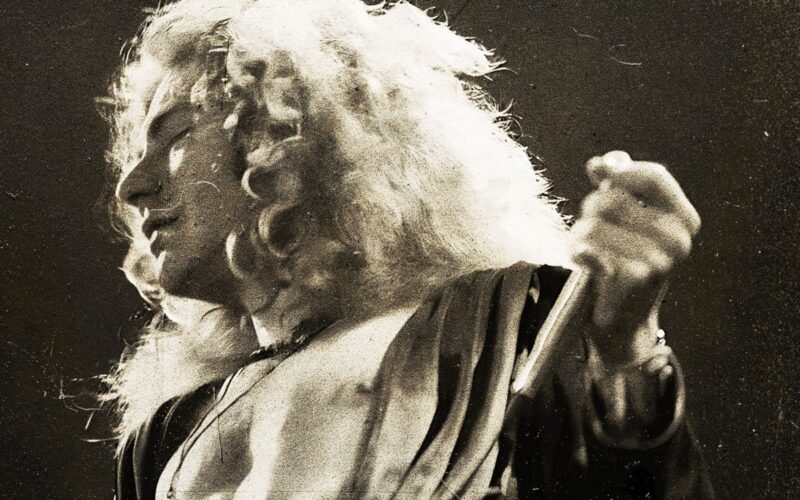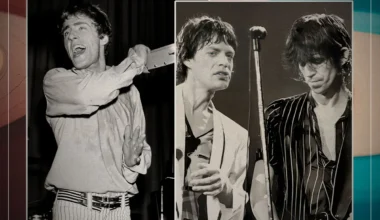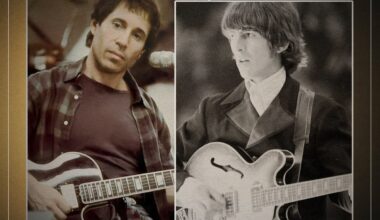Labels and rock bands never really sit well with one another. As artists, one can’t really expect a band to happily have their entire artistic vision distilled into a simple catch-all categorisation. Just as Bob Dylan refused to be folk, and the word punk rock lost all meaning five seconds after it was uttered in the papers, Led Zeppelin were also somewhat ashamed of their association with “heavy metal”. Compared to the other two examples, this is a lot more difficult for us as the audience to acclimatise to.
That’s because, unlike those two categorisations, Led Zeppelin are thought of as the founding fathers of the heavy metal genre. Around the world, you won’t find a single journalist, critic or casual rock music fan who won’t draw a direct link between the heavy metal genre and Robert Plant, Jimmy Page, John Paul Jones and John Bonham. But that doesn’t mean the band ever enjoyed such a moniker.
It is expected that an artist will reject categorisation. The very nature of being an artist is to trust in your own expressive evolution, and to, therefore, be pigeonholed by style or genre definition is the antithesis of what it means to be in a band. However, that’s not the only reason Led Zeppelin have seemingly rejected the genre they helped to create.
The main reason the band weren’t fans of their label was that it seemed to ignore all the other great work they had done. The term “heavy metal” was popularised in the late 1960s and saw Led Zeppelin as chief conspirators in its universal takeover. That charge lay mainly on the heads of their songs ‘Whole Lotta Love‘ and ‘Lemon Song’, which had a ferocity and a deep sound that had rarely been heard before. But to focus on these two songs was to negate the rest of the blues, folk, and pop that the band had infused their album with.
By the time the band had reached their third record, aptly titled Led Zeppelin III, to say that the band were pure heavy metal was to completely ignore the songs in front of them. The record is riddled with folk, traditional blues and a whole range of other styles. But, as you might imagine, that didn’t stop anybody from throwing the label towards their furrowed brows.

The truth is that the band flirted with all kinds of different sounds across their albums. Such genre limitations didn’t constrain them and instead applied themselves to all styles, usually rendering each of their records with a delicate balance of light and dark, heavy and soft. However, the dye was seemingly cast, and tracks like ‘The Immigrant Song’ seemed to seal their fate as heavy metal forefathers.
After Led Zeppelin ended and Robert Plant and Jimmy Page continued their careers, the duo were forced to deal with the label of heavy metal continually. Something which, in the 1980s, had taken on a whole new meaning for society. The term, and the genre itself, had morphed into something far removed from Led Zeppelin’s epic Danish performances of two decades prior.
The quartet had amped up the sound of the blues and ensured their place in history, while heavy metal bands of the 1980s seemed intent on supercharging distortion, ripping solos as fast as they could and generally turbo-charging everything they could. It was a marked difference. Page often found himself rallying against the term and even refused to appear on Eddie Trunk’s That Metal Show because of the show’s title, distancing himself from the leather-clad hairspray merchants that seemed to watch the show.
As Cheat Sheet reports, during an interview with Q, Robert Plant took things a little further when he was asked about heavy metal once more and pointed to a Judas Priest poster when saying: “If I’m responsible for this in any way, then I am really, really embarrassed. Hard rock, heavy metal these days is just saying, ‘Come and buy me. I’m in league with the Devil — but only in this picture because after that I’m going to be quite nice, and one day I’m going to grow up and be the manager of a pop group.’”
There you have it, much like Bob Dylan with folk and every single punk band with punk rock, perfecting terminology in rock and roll music is a fool’s errand. Even if, as Led Zeppelin most certainly are, you are the archetypal creators of such a term, chances are, within a few years, you’ll hate it more than anybody else.






